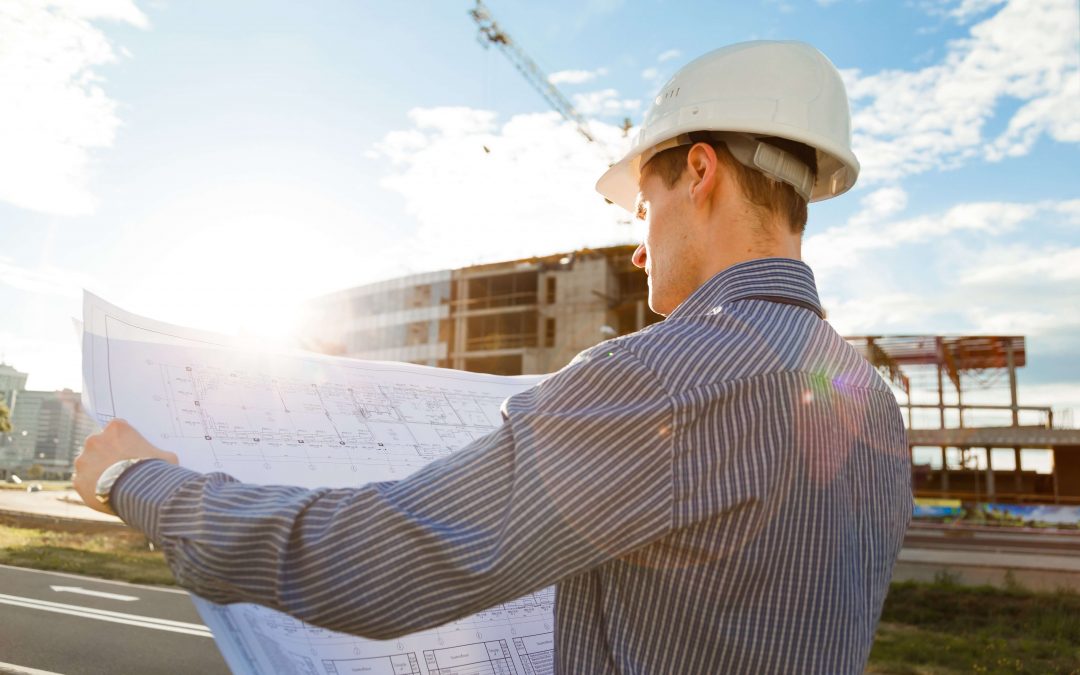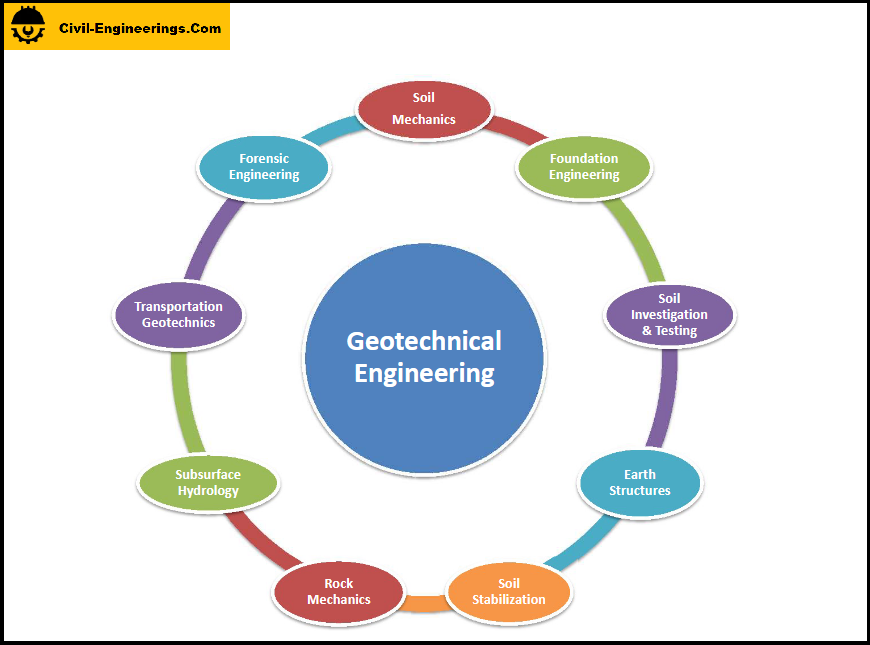Specialized Geotechnical Engineering Solutions Can Be Fun For Everyone
Specialized Geotechnical Engineering Solutions Can Be Fun For Everyone
Blog Article
The 5-Minute Rule for Specialized Geotechnical Engineering Solutions
Table of ContentsExcitement About Specialized Geotechnical Engineering SolutionsThe 9-Minute Rule for Specialized Geotechnical Engineering SolutionsThe Buzz on Specialized Geotechnical Engineering SolutionsSome Known Factual Statements About Specialized Geotechnical Engineering Solutions
They carry out website investigations, collect examples, perform lab examinations, and assess data to examine the viability of the ground for building tasks. Based upon their findings, geotechnical engineers give recommendations for foundation layout, incline stability, keeping frameworks, and reduction of geotechnical risks. They work together with various other professionals, such as engineers, architectural engineers, and building and construction groups, to make certain that geotechnical considerations are integrated into the general task style and application.
Structure Layout: Geotechnical designers play an essential role in creating structures that can safely sustain the desired framework. They assess the soil conditions and tons needs to establish the appropriate structure type, such as superficial foundations (e.g., footings), deep foundations (e.g., heaps), or specialized techniques like soil improvement. They think about variables such as settlement limits, bearing capacity, and soil-structure interaction to establish ideal foundation styles.
About Specialized Geotechnical Engineering Solutions
Here are some kinds of geotechnical engineers: Foundation Designer: Structure engineers specialize in making and assessing structures for frameworks - Specialized Geotechnical Engineering Solutions. They analyze the soil conditions, tons needs, and website attributes to identify the most suitable structure type and layout, such as superficial foundations, deep foundations, or specialized techniques like heap foundations
They do field screening, gather examples, and examine the accumulated information to characterize the dirt buildings, geologic developments, and groundwater problems at a site. Geotechnical Instrumentation Engineer: Geotechnical instrumentation designers concentrate on tracking and measuring the habits of dirt, rock, and structures. They mount and maintain instrumentation systems that check elements such as dirt settlement, groundwater degrees, slope movements, and architectural variations to analyze efficiency and give early cautions of potential issues.
In the workplace setting, geotechnical engineers use specialized software devices to perform estimations, create styles, and evaluate information. Specialized Geotechnical Engineering Solutions. They prepare reports, evaluation task specifications, communicate with clients and staff member, and coordinate project activities. The office setup provides a helpful setting for research, analysis, and cooperation with other professionals involved in the project
They often check out task sites to perform website investigations, evaluate geotechnical conditions, navigate to this site and gather data for analysis. These brows through involve taking a trip to various areas, sometimes in remote or challenging terrains. Geotechnical engineers may do dirt tasting, conduct tests, and screen building and construction tasks to ensure that the geotechnical aspects of the job are being carried out properly.
5 Simple Techniques For Specialized Geotechnical Engineering Solutions
Geotechnical designers additionally operate in specialized geotechnical laboratories. In these centers, they perform experiments, do tests on soil and rock samples, and assess the engineering buildings of the products. Geotechnical laboratory designers work extensively in these settings, managing screening devices, running instruments, and videotaping data. They collaborate with other laboratory team to guarantee accurate and reliable testing results.
Retaining Wall surfaces: Creating walls that keep back soil to stop landslides and offer security on sloped terrains. Embankments and Earthworks: Designing embankments for roadways, railways, and dams to ensure they continue to be stable under tension. The mining market counts heavily on geotechnical engineering to make certain the safety and long life of its operations.
With this in mind, we have developed our program to prepare students for success. Geotechnical engineers are involved in all phases of the layout of frameworks, from idea to building. Their work is vital in the design and preparation procedure as they analyze the honesty of soil, clay, silt, sand, and rock, prior to construction starting.
The Buzz on Specialized Geotechnical Engineering Solutions
This is followed by a ground investigation based upon the findings of the desk study and involves trial matching and sampling to reveal any type of potential concerns. Geotechnical engineers work within multidisciplinary groups, sustained by intermediate and junior engineers in addition to by CAD specialists. As an elderly geotechnical designer on a hydro plant task, jobs may include joining technological reviews (e.g., peer reviews), tailings dam assessments, dam safety and security reviews, and other researches related to the design and building of mine waste centers.
While some experts are experts solely in geotechnics, others may work under titles like engineering rock hound or ground engineer within similar capacities. As a geotechnical engineer, you'll need to: build and preserve connections with customers and other experts included in the website, throughout each projectmaintain security requirements on site be mindful of cost effects when you make recommendationsstudy geological maps and aerial photographs from a range of resources and from different time periodsexamine building and construction intends to see exactly how practical they are based on your understanding of the siteinvestigate risks or geological hazards this article for the click here to read sitesearch for environmentally delicate attributes, such as garbage dump begin to establish factual and interpretive ground modelsplan area investigationsdrill and analyse examples of bedrock, dirt, groundwater and extra products oversee various other experts on sitesolve technical issues as they arise, such as unanticipated frameworks at drill sitesmonitor problems throughout and after building to make sure frameworks are secure in the brief and long termadd information accumulated on site to your initial researchcreate geotechnical calculations, illustrations, and 2 or three-dimensional computer versions analyzing the datamake recommendations about the proposed use the site.
There are great deals of opportunities to satisfy new individuals, as you'll collaborate with a series of specialists at every site. The job can be difficult as you may be responsible for the safety and security of others while on site. There is additionally a high level of economic duty, as the recommendations you make can have significant expense effects.

Report this page